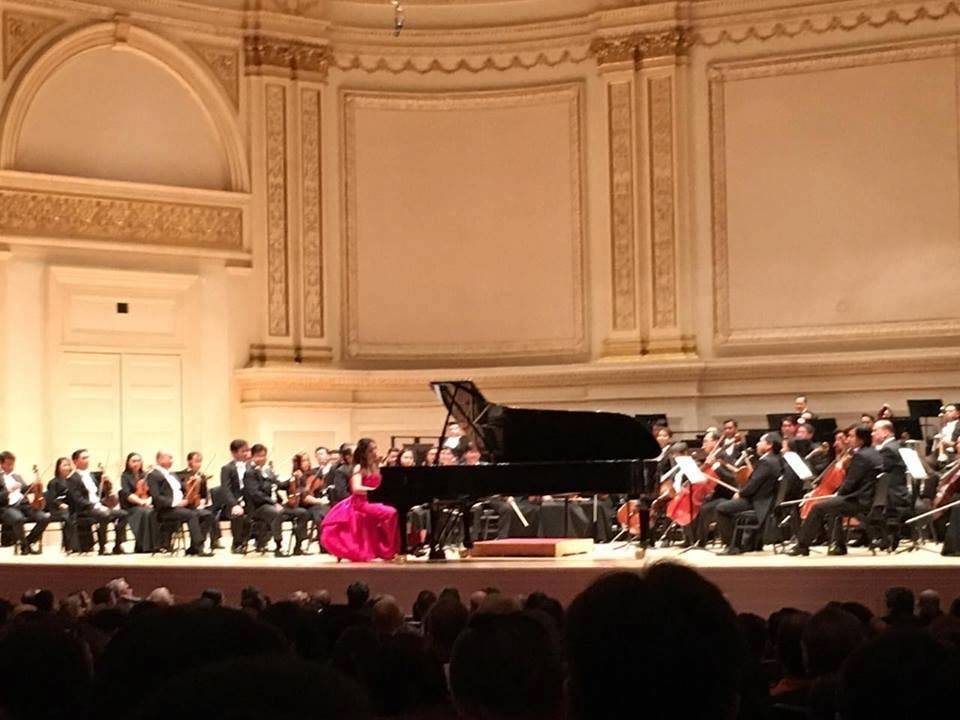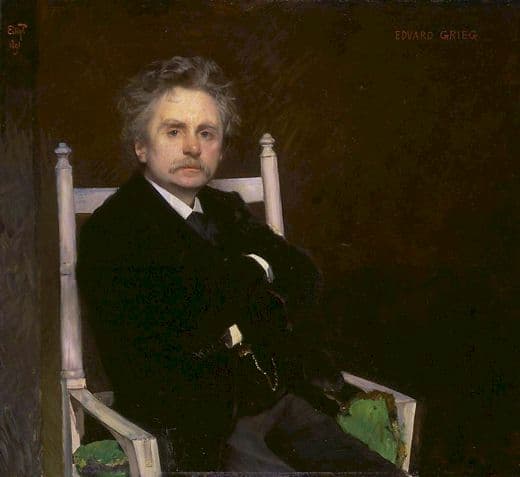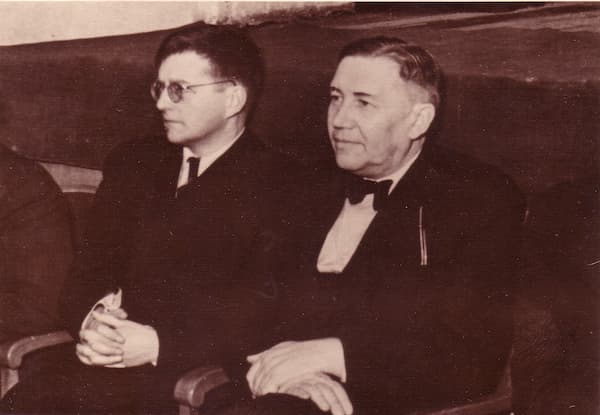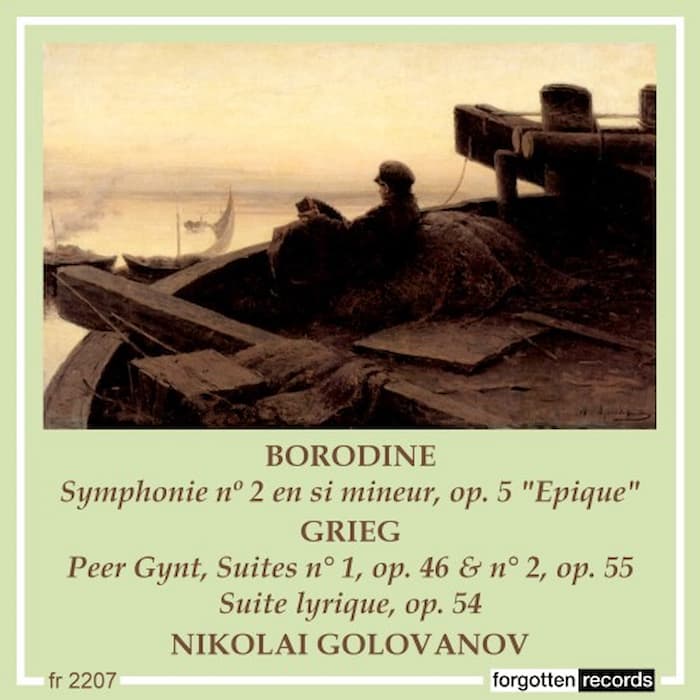- website: http://christinaperri.com
- facebook:
 / christinaperrimusic
/ christinaperrimusic
It's all about the classical music composers and their works from the last 400 years and much more about music. Hier erfahren Sie alles über die klassischen Komponisten und ihre Meisterwerke der letzten vierhundert Jahre und vieles mehr über Klassische Musik.
Total Pageviews
Wednesday, December 4, 2024
Christina Perri - A Thousand Years [Official Music Video]
Tuesday, December 3, 2024
Accent - Let It Snow! (Christmas Jazz feat. Gordon Goodwin's Big Phat Band
Sunday, December 1, 2024
Christmas Medley - Joslin - Live with the Irving Symphony Orchestra
Licad to reconnect with Chopin in Carnegie Hall concert

When Cecile Licad plays Chopin’s 24 Preludes, Op. 28 on Dec. 5 at the Carnegie Hall in New York City, she will once more assert her distinguished link with the legendary Polish composer who died on Oct. 17, 1849 in Paris at the age of 39.
Licad is the first Filipina recipient of the Grand Prix du Disque Frederic Chopin for her interpretation of Chopin No. 2 with the London Symphony Orchestra under the baton of Andre Previn.
The acclaimed pianist was last heard at the Carnegie Hall in 2016 with the Philippine Philharmonic Orchestra where she received a standing ovation.
Saturday, November 30, 2024
Elgar: Pomp and Circumstance | BBC Proms 2014 - BBC
Friday, November 29, 2024
𝗛𝗮𝗽𝗽𝘆 𝗕𝗶𝗿𝘁𝗵𝗱𝗮𝘆, 𝗦𝗶𝗿 𝗥𝗲𝘆! ❤️
Bringing Folk Music to Life: Grieg’s Lyric Pieces
by Maureen Buja, Interlude

Eilif Peterssen: Edvard Grieg, 1891 (Oslo: Nasjonalmuseet)
Edvard Grieg (1843–1907) was born in Bergen, Norway, and when his skills were recognised by the violinist and composer Ole Bull, he was sent to Leipzig at age 15 to attend the conservatory. Although he later complained about the conservatory, there is no doubt that he received very good and solid musical training. In a city with an extremely active musical life, he heard music he never would have encountered in Norway and it made a lasting impression on him.
When he returned to Scandinavia, he first went to Copenhagen and there started to make his name as a composer. Meeting the Norwegian composer Rikard Nordraak, Grieg came to believe, as Nordraak did, that the future of Norwegian music lay in nationalism and that folksong was key to this.
In 1866, Grieg returned to Norway and settled in Christiana, a part of the capital city of Oslo. Although he wrote many major works, his identity with folk music tainted his reputation as someone who simply borrowed from folk music. Grieg’s own compositional style followed that of traditional Norwegian music: ‘Much instrumental Norwegian folk-music is built from small melodic themes, units which are repeated with small variations in appoggiaturas and sometimes with rhythmic displacements’. Development sections are rare. In following this style, he made it difficult for listeners to tell the difference between his original works and folk music borrowings.
The rise of the piano (it’s estimated that in 1910, more than 600,000 pianos were produced) gave Grieg a ready audience for his piano pieces. They were so popular that his publisher, C.F. Peters in Leipzig, eventually gave him an annual salary for the right to have first choice of his new works.
In his collections of Lyric Pieces, there were eventually 66 works published in 10 albums in the 34 years between 1867 and 1901. His fifth book, Op. 54, published in 1891, is considered to contain his best work in the series. The idea of Nature binds the collection together, and the source material is Grieg’s own, not coming from folk music.
The fourth piece in the collection, the March of the Trolls, takes the equivalent of the Norwegian boogieman as its subject. When the irritable, short-tempered trolls come out after dark with their plans to wreak havoc on quiet households everywhere, beware!
This piece, originally for piano, was orchestrated by conductor Anton Seidl for the New York Philharmonic as part of a work he called Norwegian Suite. This was later revised by Grieg as Lyric Suite with one piece removed, another added, and the order shifted. Grieg’s revised version replaced Seidl’s original version, which is rarely heard anymore.

Golovanov (R) and Shostakovich (L)
This recording was made in Moscow in 1949, with Nikolai Golovanov leading the Orchestre Symphonique de la Radio de l’URSS. Soviet composer and conductor Nikolai Semyonovich Golovanov (1891–1953) was one of the leading conductors of his time, and was extensively associated with the Bolshoi Opera. He was recognised as a People’s Artist of the USSR and Honoured Artist of the RSFSR, was awarded the Stalin Prize Winner four times, and was also awarded the Order of Lenin, Order of the Red Banner of Labor, Medal ‘For the Defence of Moscow’ and Medal ‘For Valiant Labor in the Great Patriotic War 1941–1945’. He was dismissed by Stalin over a disagreement about casting a Jewish singer for the title role in a recording of Boris Godunov. His friends said it was his shame over this dismissal that led to his death.

Performed by
Nikolai Golovanov
Orchestre Symphonique de la Radio de l’URSS
Recorded in 1949
